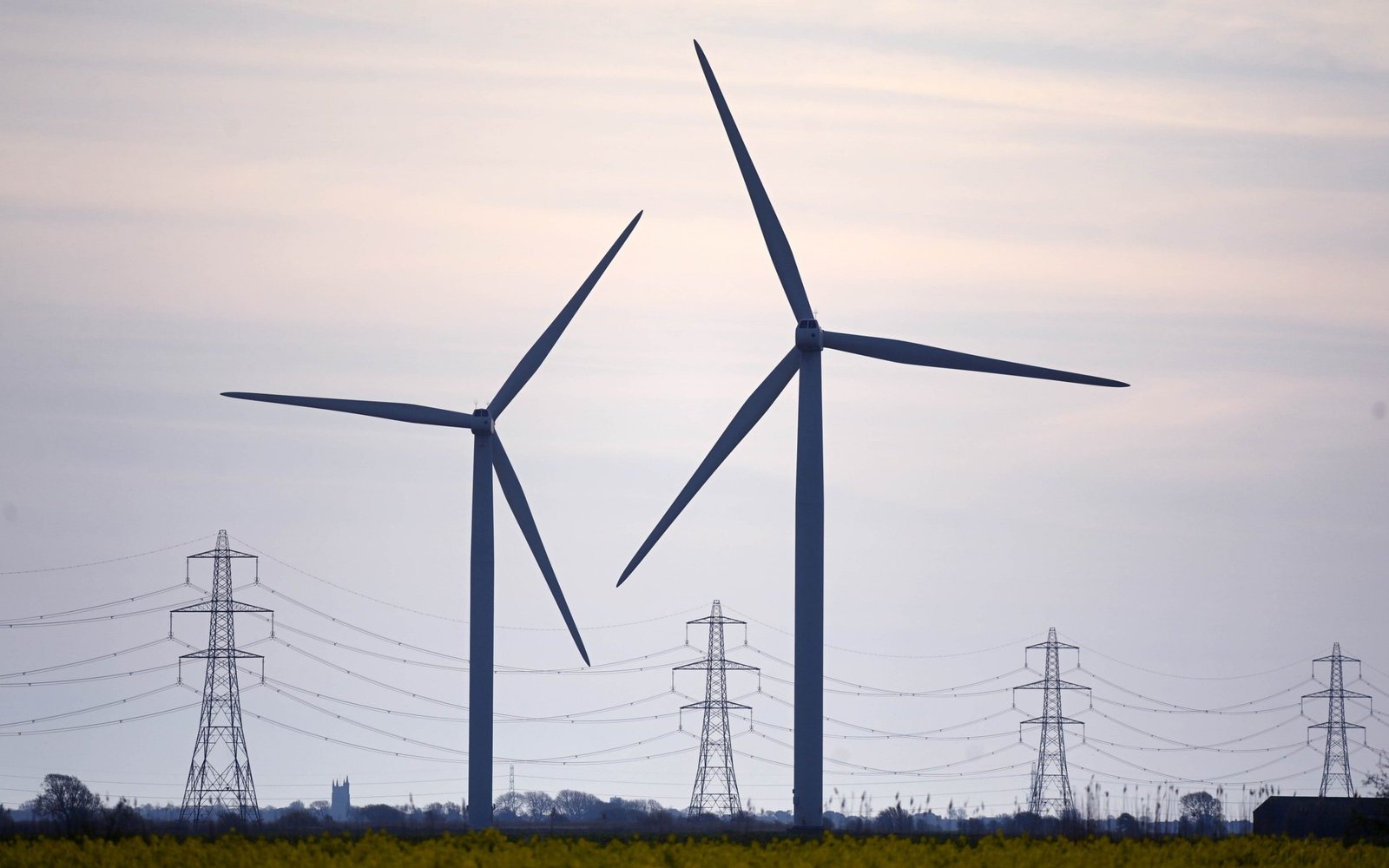
One of the most recent developments, the giant Hornsea Two wind farm at Orsted, 55 miles off the Yorkshire coast, generated its first electricity in December and will be fully operational this year.
Coal now generates less than 2% of UK electricity and this is expected to be fully phased in by October 2024. Wind typically accounts for around 20% of the total, with gas on 35% and nuclear around 16%.
Over the past three months, EnAppSys said wind generated 23.3 terawatt hours, about 31% of total demand and breaking its previous record of 23 terawatt hours at the start of 2020.
It accounted for almost 70% of all production from renewable energy, which includes hydroelectricity and biomass. Overall wind output more than doubled from the third quarter of 2021, when a lull in wind speeds caused output to drop to 10.4 terawatt hours.
Despite the increase in wind power, high gas and coal prices resulting from global gas shortages and Russia’s war on Ukraine have led to record wholesale electricity prices.
Daily electricity prices were three times higher than in the same quarter of 2021 and six times higher than in the same quarter of 2020.
High wholesale gas and electricity prices are now being felt in households across Britain, due to the 54% increase in the energy price cap in early April, pushing up bills averages at £1,971.
High fossil fuel prices have been “the main factor” in keeping electricity prices high despite increased wind generation, EnAppSys said.
The functioning of the market means that gas determines the price of electricity more than other energy sources.
Some are calling for this to be changed so that wholesale prices better reflect the growing use of renewables, which have no fuel costs and where installation costs have fallen.
“Record fuel prices mean this was one of the most expensive quarters in UK market history,” EnAppSys added.
Shell to develop ‘blue’ hydrogen facility in UK as part of decarbonisation
Shell has struck a deal with a German energy company to produce hydrogen in the Humber as part of efforts to decarbonise the UK’s largest industrial cluster.
Uniper and Shell have signed a “cooperation agreement” to manufacture the gas at the German utility’s Killingholme site, from where it could then be used by heavy industry in the region.
Although more likely to be used for industrial purposes, the hydrogen produced at the 720 MW plant would be enough to heat around half a million homes a year, the companies said.
Hydrogen produces no carbon emissions when burned, and politicians hope it can replace fossil fuels in industry, heavy transport and potentially home heating as the UK attempts to reduce emissions to net zero by 2050.
Shell and Uniper plan to produce hydrogen from natural gas. This is the most common method currently used to make hydrogen, but it is in itself a vast source of carbon emissions.
To make this hydrogen “low carbon”, they plan to capture and store the emissions from this process under the North Sea, using carbon capture technology that has yet to be deployed on a large scale in the UK. United.
More about this article: Read More
Source: www.telegraph.co.uk
This notice was published: 2022-04-13 05:00:00
